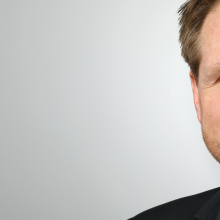Advanced Computing innovation area
Over the past few decades, a wide range of computing variants have developed which, depending on their degree of maturity, have also found applications outside of science. Advanced computing stands for the use of advanced technologies and concepts to handle complex information processing tasks. This includes high-performance computing (in the industrial and scientific fields), quantum computing, distributed/edge computing and much more. The aim is to combine specific computer systems and innovative algorithms to solve challenging problems. The innovation potential lies in the computer systems, their architectures, the algorithms and in the consideration of new requirements such as sustainability, security, sovereignty and robustness.
Subject areas
This is an excerpt of current topics that are continuously being expanded and updated.
- Computational Reuse
Reusability of data and information by making it structured and accessible in such a way that it can be easily found, used and reused in different applications or calculations (FAIR principle on data/information).
- Distributed computing
Distributed computing refers to the allocation of complex tasks to several interconnected computers that work in parallel. This enables faster processing, better resource utilisation and scalability. The systems coordinate their work via networks, share data and results in order to solve large problems together, such as in clusters, clouds or global networks.
- Energy-aware computing
Energy-aware computing optimises the energy consumption of computer systems by adapting resources and operating modes to workload and performance requirements. Emission-aware computing takes into account the carbon footprint of energy sources and prioritises clean energy or low-emission time slots to minimise the environmental impact. Both approaches promote sustainability in IT.
- On-the-fly computing
On-the-fly computing describes the dynamic and demand-orientated creation of individual IT services. Resources, software components and data are combined in real time to provide customised solutions for specific requirements. This approach promotes flexibility, efficiency and enables adaptation to changing user needs without pre-defined infrastructures.
Fields of application
Sector coupling
Waste heat utilisation
Integration of renewable energy
Edge Cloud System 4
Goals and visions
Our aim is to use existing variants in computing to support data-driven and software-intensive innovations. These technologies enable innovations that would not be realisable without their use. In addition, we are driving the evolution of these computing variants to meet the ever-changing demands of sustainability, security and other important aspects.
Research questions and tasks
- Where are the freedoms and limits in the application of the topics?
- Automation and data requirements
- Intelligent control and regulation
- Building understanding
- Identification and implementation in applications
- Combining physical and digital processes
Manager

> Software Innovation Campus Paderborn (SICP)
Second Head - Research Associate - Vice Managing Director Software Innovation Lab, R&D Manager – Smart Systems
Office: ZM2.A.03.74
Phone: +49 5251 60-6823
Phone: +49 1788192000
E-mail: gsch@mail.uni-paderborn.de
E-mail: schomaker@sicp.de
University lecturers involved
> Informatik Rechnerbetrieb (IRB)
Head - Professor
Office: F1.225
Phone: +49 5251 60-1761
E-mail: axel.ngonga@uni-paderborn.de
> Faculty of Computer Science, Electrical Engineering and Mathematics
Dean of Research - Professor
Office: O3.207
Phone: +49 5251 60-5250
E-mail: eim-forschungsdekan@lists.uni-paderborn.de
Head - Professor
Office: X1.101
Phone: +49 5251 60-5399
Phone: +49 5251 60-1735
E-mail: christian.plessl@uni-paderborn.de
> Theory of Distributed Systems
Head - Professor - Theory of Distributed Systems
Office: F2.326
Phone: +49 5251 60-6728
E-mail: scheideler@uni-paderborn.de
Head - Professor
Office: O3.149
Phone: +49 5251 60-5375
E-mail: lin.wang@uni-paderborn.de
Office: Q2.463
Phone: +49 5251 60-3115
E-mail: guido.schryen@uni-paderborn.de
Head - Professor
Office: P1.6.08.1
Phone: +49 5251 60-3002
E-mail: sybille.hellebrand@uni-paderborn.de
> Signal & System Theory (SST)
Head - Professor
Office: P1.7.01.2
Phone: +49 5251 60-2213
E-mail: peter.schreier@sst.uni-paderborn.de
